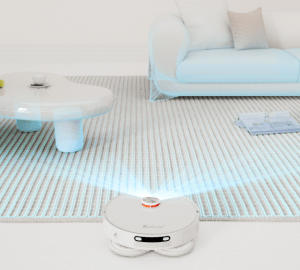In our fast-paced world, sleep often takes a backseat to our busy schedules and endless to-do lists. However, getting sufficient sleep is crucial for our overall well-being and mental performance. Ignoring the signs of sleep deprivation can have detrimental effects on our health and daily functioning. In this article, we will explore 10 telltale signs that you need more sleep. By recognizing these signs and prioritizing quality rest, you can take proactive steps towards improving your sleep and overall quality of life.
- Persistent Fatigue and Low Energy Levels: Feeling consistently tired and lacking energy throughout the day is a clear indication that you need more sleep. If you find yourself struggling to stay awake or experiencing frequent energy crashes, it’s essential to prioritize restorative sleep to replenish your energy reserves.
- Difficulty Concentrating and Memory Problems: Sleep deprivation can significantly impair cognitive function, making it difficult to concentrate, focus, and remember important details. If you frequently find yourself zoning out or experiencing memory lapses, it’s time to assess your sleep patterns and make adjustments for better sleep hygiene.
- Mood Swings and Irritability: Lack of sleep can leave you feeling emotionally unstable, leading to increased irritability, mood swings, and heightened sensitivity to stress. If you notice a sudden change in your emotional well-being or find yourself easily agitated, it’s crucial to evaluate your sleep habits and ensure you’re getting adequate rest.
- Weakened Immune System: Insufficient sleep compromises your immune system, leaving you more susceptible to illnesses and infections. If you find yourself falling ill more frequently or taking longer to recover from illnesses, it may be a sign that your body needs more restorative sleep to bolster its defenses.
- Increased Appetite and Cravings: Sleep deprivation disrupts the balance of hunger-regulating hormones, leading to an increased appetite and cravings for unhealthy, calorie-dense foods. If you find yourself reaching for sugary or high-fat snacks more often, it’s worth examining whether lack of sleep is playing a role in your increased food cravings.
- Impaired Physical Coordination and Reaction Time: Adequate sleep is essential for maintaining optimal physical coordination and reaction time. If you notice a decline in your motor skills, balance, or slowed reflexes, it may be an indicator that your body needs more sleep to restore its physical functionality.
- Frequent Headaches: Persistent headaches, including tension headaches or migraines, can be linked to sleep deprivation. If you find yourself frequently reaching for pain relief medications to alleviate headaches, it’s worth considering whether improving your sleep habits could be an effective remedy.
- Decreased Productivity and Performance: Sleep deprivation significantly hampers productivity and impairs overall performance, both in personal and professional endeavors. If you notice a decline in your efficiency, creativity, or ability to accomplish tasks, it’s important to address any sleep-related issues that may be hindering your success.
- Increased Forgetfulness and Lack of Mental Clarity: Sleep plays a vital role in consolidating memories and promoting mental clarity. If you find yourself forgetting important details, struggling to recall information, or experiencing a general mental fog, it may be time to prioritize sleep and ensure you’re giving your brain the rest it needs.
- Heightened Stress and Anxiety Levels: Chronic sleep deprivation can exacerbate stress and anxiety symptoms, making it difficult to cope with daily challenges. If you notice an increase in stress levels or find it challenging to manage anxiety, improving your sleep quality can be a valuable strategy in restoring emotional well-being.
Recognizing the signs that you need more sleep is crucial for maintaining optimal health, cognitive function, and emotional well-being. By paying attention to persistent fatigue, difficulty concentrating, mood swings, weakened immunity, increased appetite, impaired coordination, frequent headaches, decreased productivity, forgetfulness, and heightened stress levels, you can take proactive steps to improve your sleep hygiene. Prioritizing restorative sleep will not only rejuvenate your mind and body but also enhance your overall quality of life. Listen to your body’s signals, make sleep a priority, and reap the benefits of a well-rested and revitalized self.




